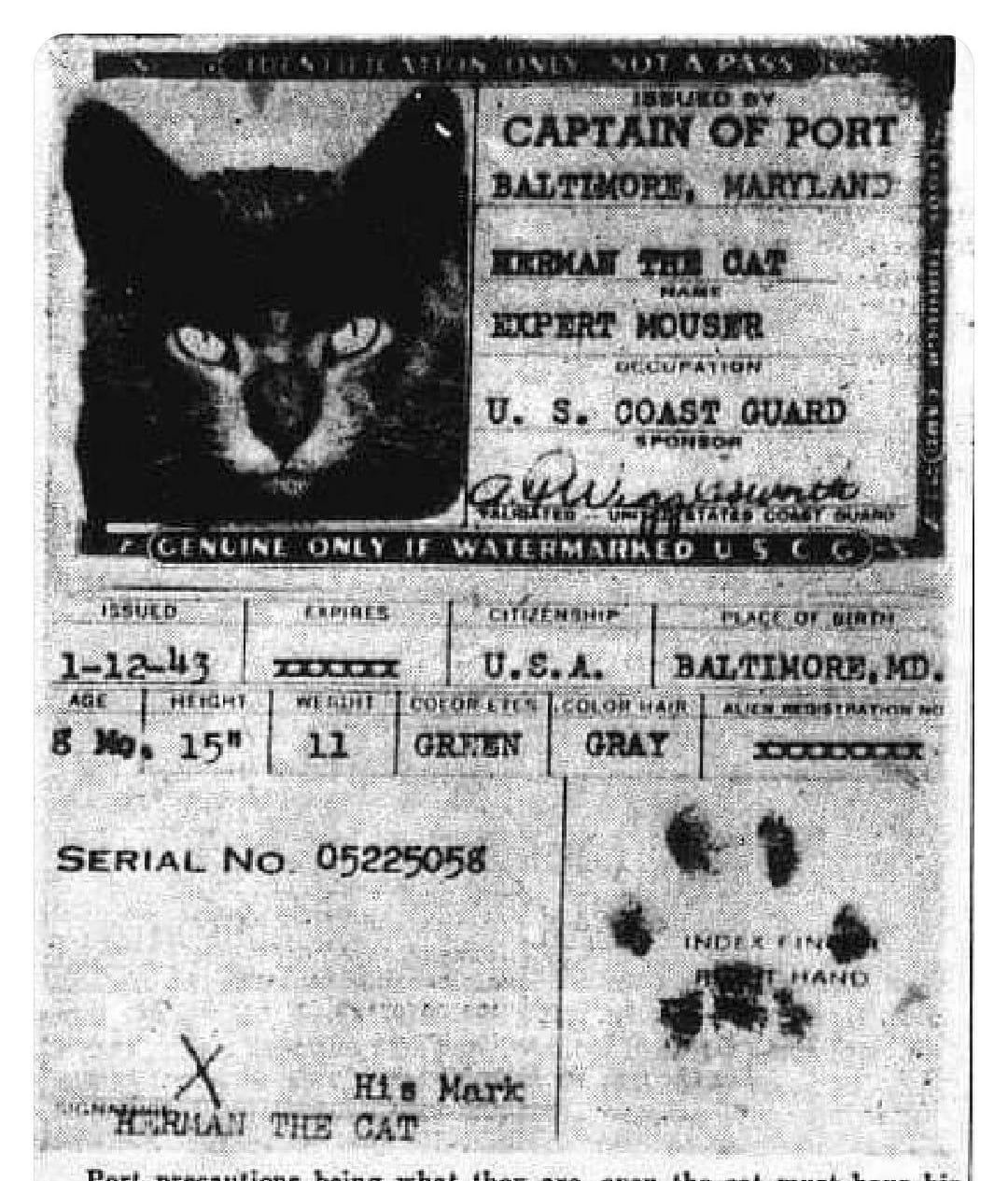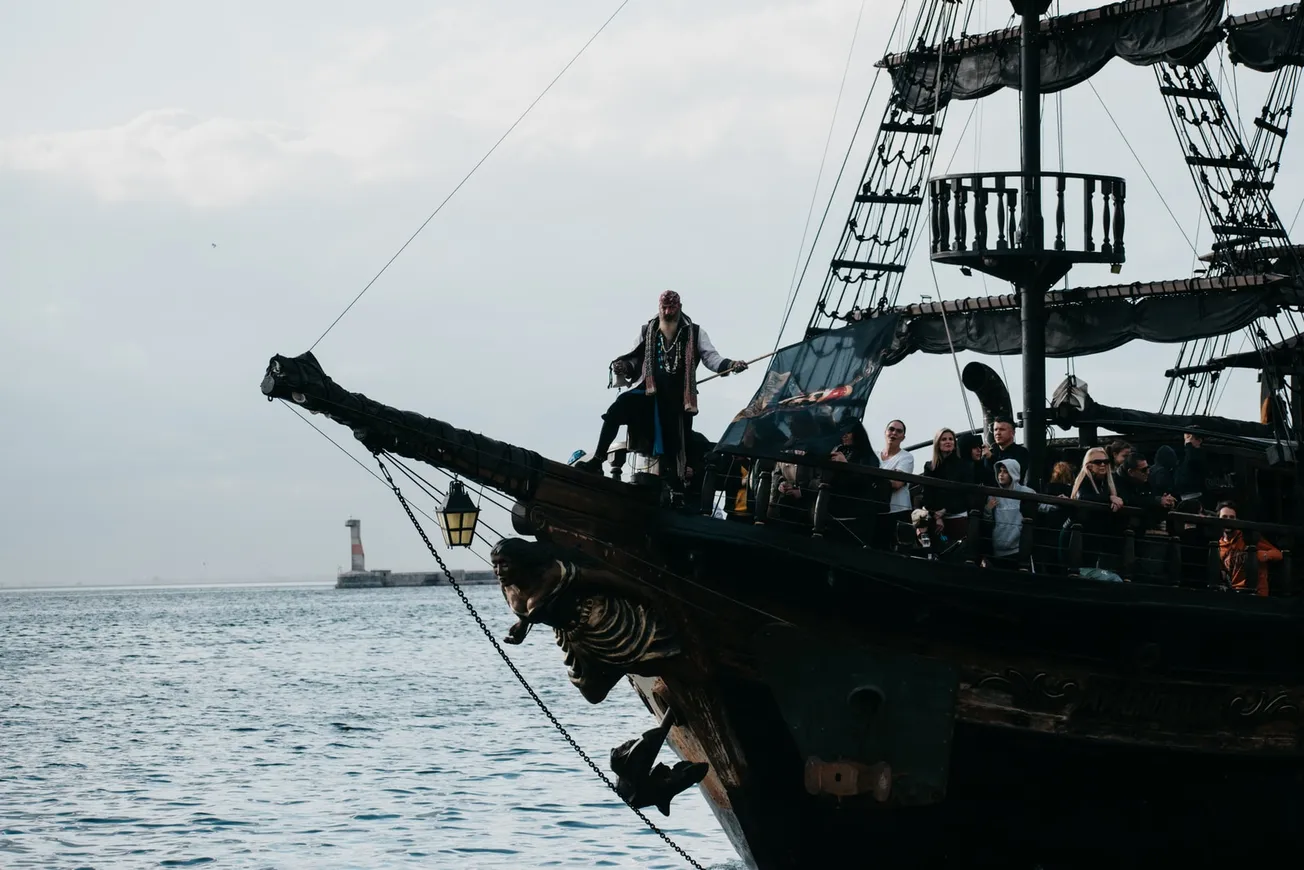Table of Contents
Actors are notorious for their weird superstitions. Perhaps that can be put down to the obvious stupidity of a great many actors. Millennia before celebrities were demonstrating their essential idiocy on social media, though, sailors surely took the prize as the most superstitious profession on earth.
Some superstitions appear to have faded with modernity – the prohibition against women on board, for instance – but the list of venerable maritime superstitions is a long, long one.
One that sailors share with actors is an aversion to whistling.
Whistling on board was a no-no. This was believed to attract bad weather, including strong winds and storms.
Whistling, in general, has been associated with misfortune and the summoning of evil spirits. These beliefs can be found across Europe, Asia and the Middle East.
In David Copperfield, David mentions in his introduction that I was born with a caul, which was advertised for sale, in the newspapers, at the low price of fifteen guineas. Whether sea-going people were short of money about that time, or were short of faith and preferred cork jackets, I don’t know; all I know is, that there was but one solitary bidding. Why does David single out “sea-going people”?
The caul of a newborn […] is considered to bring good luck. Most babies aren’t born with it, so it is kind of special.
According to superstition, those who own the lucky charm are safe from shipwrecks and can avoid drowning. The roots of the superstition are not well known, but the first recorded reference to it dates back to 1797.
Other superstitions were linked to witchcraft.
Breaking eggshells on board is a way to stay safe from witches. The connection is made in Reginald Scot’s 1584 book The Discoverie of Witchcraft, which says that witches had the ability to sail the seven seas using unbroken eggshells as boats.
In a profession once so notoriously precarious, superstitions regarding omens good and bad abounded. Sharks following a ship was, perhaps unsurprisingly, regarded as an omen of death.
Manta rays were believed to be able to attach themselves to a ship’s anchor and drag it down to the depths of the ocean.
Redheads were considered unlucky to bring on board. Apparently, flat-footed people were also not welcomed!
On the other hand, dolphins were considered a good luck sign.
Contrary to most landlubber superstitions, cats got a lucky break at sea.
Cats, especially black ones, get a bad rep, unless, of course, you’re a sailor. Cats are associated with good luck, so having one on board is a good thing. The superstition may have something to do with the fact that they hunt rats.
One famous ship’s cat, Herman the Cat, was even issued with his own passport, complete with paw-print.

Albatross had a wing in each camp. An albatross following a ship was a very good omen. This is thought, variously, to be attributed to the semi-angelic Aesir of Norse mythology, the birds’ resemblance to a cross, or that they were the “incarnations of wandering souls”, including those of old sailors.
Naturally, then ill-treating such a “bird of good omen” brought very bad luck. In Coleridge’s epic poem, The Rime of the Ancient Mariner, the killing of an albatross sets off a chain of dreadful events.
Bread has different meanings. In England, for instance, bread baked on Good Friday was gifted to sailors for good luck.
There are a host of superstitions linked to different days of the year and their religious links.
Starting a voyage on a Friday is not a good omen. Some sources link this superstition to the crucifixion of Jesus Christ. Thursday is no good either, as Thursday is Thor’s day, and no sailor wants to experience the wrath of the god of storms.
The first Monday of April is also not a good day to set sail, as it was the day Cain killed Abel. Nor is the second Monday in August, which is the day Sodom and Gomorrah were destroyed.
Not all superstitions were baseless, though.
Red skies can have two meanings for sailors, depending on whether they appear during the morning or night. This weather lore is pretty well known and goes: “Red sky at night, sailor’s delight. Red sky in morning, sailor’s warning.”
Red skies at night means that the weather is clear, and that sunlight has bounced off rain clouds that have already passed. This is particularly true if you’re in the West. Red skies in the morning, however, are usually a sign of light bouncing off high clouds, which can indeed mean that bad weather is on the way.
The particular tinge of red is significant, too. Light, pinkish clouds usually mean clearing weather, while dark, crimson clouds are a bad sign.
In defiance of the “Calypso” song, bananas were long regarded with suspicion by sailors. With good reason.
This superstition is believed to date back to the 1700s, and it essentially forbids bananas on board. The reason? Well, bananas would often be accompanied by spiders, whose bite was sometimes fatal for crew members.
Plus, they would rot quickly and release ethylene gas, which would rot other fruit as well. Not to mention that the gas is flammable.
MSN
Still not sure what they had against rangas, though.









